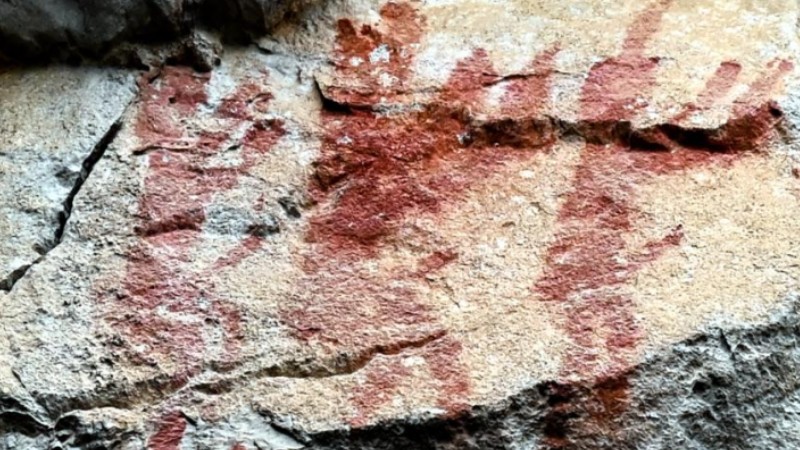Scientific expedition supports high-quality development in Xinjiang
URUMQI, Aug. 15 (Xinhua) -- In the Tianshan Mountains in northwest China's Xinjiang Uygur Autonomous Region, a team of researchers was giving trees physical examinations. In this process a stream of water was released from the core of a poplar tree, when it was drilled into by the researchers.
"This is a mechanism by which poplars adapt to drought. They absorb a lot of water when it's wet and store it inside their bodies to reuse it in times of extreme drought," explained Jia Xiaoxu, who is a researcher at the Institute of Geographic Sciences and Natural Resources Research under the Chinese Academy of Sciences (CAS).
Jia is the leader of a project on land development and eco-environmental effects assessment on the northern slopes of the Tianshan Mountains. This project forms part of the third comprehensive scientific expedition in Xinjiang.
Jia led his team in drilling and collecting samples from hundreds of tree cores. By observing the color and smell of the liquid that came out of the cores, they were able to make a preliminary judgment concerning the health of the trees.
The researchers then brought the samples from the sick trees to the lab to do "blood tests" to further analyze what kind of diseases the trees were infected with.
"Our survey has found that the overall condition of Xinjiang's protection forests is relatively good at present, thanks to ecological water replenishment through diffuse or drip irrigation," Jia said.
Like Jia, many scientists are participating in the ongoing comprehensive scientific expedition, which features a variety of projects.
According to the Xinjiang Institute of Ecology and Geography of the CAS, the organizer of the expedition, the expedition includes a total of 30 projects involving the Tarim River basin, the Ili River basin, the Ertix River basin, the economic belt along the northern slopes of the Tianshan Mountains, and the Turpan-Hami basin, as well as radiating to neighboring countries and regions.
The institute indicated that the scientific expedition, which was launched in 2021 and is expected to last for five years, had already achieved a series of positive results.
"The third comprehensive scientific expedition has discovered some new potential water sources available in Xinjiang, and new species have been found in the biodiversity research," said Zhang Yuanming, director of the Xinjiang Institute of Ecology and Geography.
New technological means, such as drones and satellite remote sensing, have been used in the scientific expedition to examine areas for which information was previously lacking, while artificial intelligence, deep learning and other technologies have also been used to analyze data, Zhang said.
The scientific expedition is expected to outline a roadmap for ecological construction and green development in Xinjiang for the next 30 years, Zhang added.
Xu Jiliang, dean of the school of ecology and nature conservation at Beijing Forestry University, is leading a team conducting a survey of biodiversity and biological resources of special resistance in the Turpan-Hami basin.
This survey has constructed a library of ecological restoration species for mines, oil wells and other energy bases, which will help repair degraded ecosystems, improve the regeneration capacity of natural resources, and realize the sustainable improvement and restoration of the ecological environment.
"The scientific research data and experience we have accumulated can be provided for use in similar ecological restoration efforts in countries along the Belt and Road," Xu said.
The third comprehensive scientific expedition not only supports Xinjiang's high-quality development, but also serves Belt and Road construction, Zhang said.
"The ecosystems of Xinjiang are not closed, and they are distributed across national boundaries, so the scientific expedition involves international cooperation," Zhang said. "For example, scientists from China and Tajikistan have jointly conducted a cross-border survey of biodiversity on the Pamir Plateau. We can use this scientific expedition to gain an overall understanding of biodiversity and ecosystems along the Belt and Road."
Zhang said that scientists are also conducting expeditions focused on the local environment and desertification in the Taklamakan Desert.
"Thanks to this expedition and the decades of experience we have accumulated in saline and desertification management, we can promote our solution to Central Asian and African countries to achieve the goal of common ecological and environmental management," he added.
Photos
Related Stories
- Scenery of Jiaohe ancient city in Turpan, NW China
- Xinjiang tour guide's endeavor to protect cultural heritage
- Local melon from NW China's Xinjiang gains nationwide popularity
- Dominica's diplomat: Western media reporting on Xinjiang false
- Foreign envoys witness Xinjiang's vibrant life, development in visit
Copyright © 2023 People's Daily Online. All Rights Reserved.









